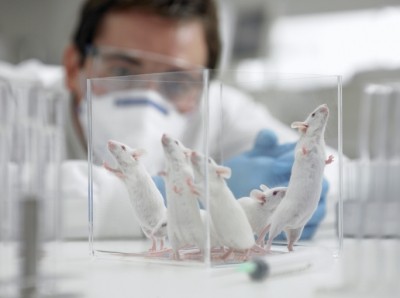
Court finds against Symrise on animal tests
Submitted by:
Andrew Warmington
The EU Court of Justice (CJEU) in Luxembourg has dismissed an action by Symrise to annul a decision by the European Chemicals Agency (ECHA) board of appeal in 2021. The long-running case related to a required compliance check using animal tests on Symrise’s REACH registration dossier for the UV fillers homosalate and 2-ethylhexyl salicylate.
The court ordered Symrise to pay its costs and ECHA’s. The NGOs and companies who had supported Symrise - Cruelty Free Europe (CFE), PETA International Science Consortium in the UK and Germany, the European Federation for Cosmetics Ingredients, and Unilever’s UK and Swiss operations - must pay their own costs.
Under Article 25 of REACH, manufacturers are required to generate information obtained by means other than animal testing whenever possible’ and to undertake such testing only as a last resort. However, where there are no alternatives, animal tests can still be ordered under REACH.
On this basis, ECHA ordered Symrise to test the two chemicals on animals most notably an extended one-generation reproductive toxicity study (EOGRTS). The company took the case to ECHA’s Board of Appeal, which dismissed it in 2021. The UK government later used this ruling to justify abandoning its 1998 ban on animal testing for cosmetics.
Symrise claimed that because the substance is used exclusively as an ingredient in cosmetic products, the Cosmetics Regulation ban on animal testing applied. It also alleged infringement of its procedural rights, including a violation of the right to comment the draft decision imposing further testing requirements and the right to be heard.
The Board of Appeal found that the company’s right to comment, as laid down in Article 50-52 of REACH had not been breached, there being no right to comment a revised draft decision. Further, while Symrise had been invited to attend the meeting of ECHA’s member states committee at which the draft decision was discussed, the procedural rules do not foresee a right for registrants to speak at such meetings.
The Board did find that Symrise’s right to be heard had been violated as regards the EOGRTS study as it had been allowed to comment on the Danish proposal, which was the only study ultimately requested to examine concerns regarding the substance's reproductive toxicity properties. It therefore remitted this requirement to ECHA for further action.
It has been claimed that the testing programme would need over 5,500 animals, including rats, rabbits and fish, to be force-fed the ingredients for up to three months before being killed and dissected. In addition, NGOs argue that the blanket ban on animal testing in the Cosmetics Regulation in 2013 should take precedence, because REACH states that its testing requirements apply ‘without prejudice’ to these bans.
“PETA condemns the CJEU for ignoring the purpose of the cosmetics animal testing ban, which was to ensure that only superior non-animal methods are used to assess the safety of cosmetics,” said PETA’s senior science policy manager, Julia Baines. Meanwhile, CFE’s director of science and regulatory affairs, Dr Emma Grange, said that the decision renders the EU and UK bans “virtually meaningless, as this case will set a damaging precedent in toxicity testing for cosmetics ingredients, even if they have been approved as safe for use for many years”.
